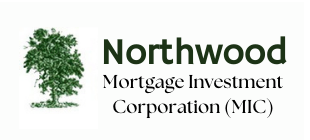When it comes to mortgage rates in Canada, there are so many factors involved it can be hard to keep track. You’re probably aware that the Bank of Canada is a top player in how mortgage rates are determined, but there’s more to it than the BoC simply deciding what rate to set at any given time. Everyone is looking for a low mortgage rate, but the factors that affect variable mortgage rates are different than those that affect their fixed rate counterparts. Below, we’ll explore the differences.
Variable mortgage rates
A variable rate mortgage is a loan where the interest rate may change during the mortgage’s term. As the borrower, your monthly payment will be same, but if there is a low interest rate, you will still be able to take advantage of it. For example, if the interest rate increases, the amount of your monthly payment that is applied to the mortgage’s principal will decrease. On the other hand, if the interest rate decreases, the amount being applied to the principal will increase.
When it comes to variable mortgage rates, these are determined by the Bank of Canada’s key interest rate (or overnight rate – the rate that banks are able to charge one another to cover their daily transactions) and how they affect the commercial banks’ prime rates. The prime rate is the lowest mortgage rate at which any bank’s best customers can borrow money. So, when the BoC increases their rate, which they do often to fight inflation, the rates on variable mortgages go up as well.
Fixed mortgage rates
A fixed rate mortgage is a loan in which the mortgage rate remains the same throughout the term. Unlike variable rate mortgages, fixed rate mortgages do not depend on the Bank of Canada to set their rates. In a fixed rate mortgage, the rates are affected by the bond market. The bond market is the commercial fiscal market where banks and other financial institutions can buy and sell securities in the form of bonds. The interest rates in the bond market move up and down more frequently than the prime rate. This is due to the sensitivity of the bond market and how it responds to market fluctuations.
Does the time of year affect mortgage rates?
There is no perfect time of year to get a low mortgage rate. The Bank of Canada sets their rates eight times yearly: late January, early March, mid-April, late May, mid-July, early September, mid-October and early December.






































